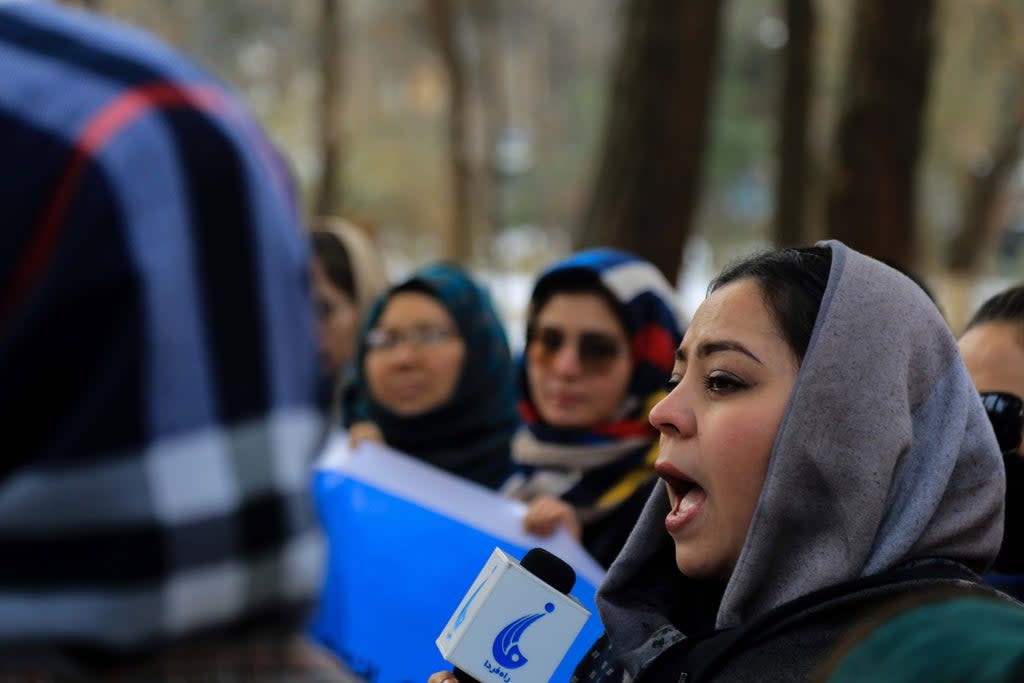‘Survived gang rape’: LGBT+ Afghans facing attacks from Taliban with their lives at risk, report finds

LGBT+ Afghans are being subjected to attacks and threats from the Taliban with their lives at risk under the new regime, according to a scathing report.
Research, conducted by Human Rights Watch and OutRight Action International, found some people have even been forced to flee their homes to escape attacks by the Taliban.
While others have been abused by relatives, neighbours and romantic partners who now back the Taliban, or assume they must punish LGBT+ people to protect themselves against reprisals.
J Lester Feder, senior fellow for emergency research at OutRight Action International, said: “We spoke with LGBT Afghans who have survived gang rape, mob attacks, or have been hunted by their own family members who joined the Taliban, and they have no hope that state institutions will protect them.
“For those LGBT people who want to flee the country, there are few good options; most of Afghanistan's neighbours also criminalize same-sex relations. It is difficult to overstate how devastating – and terrifying – the return of Taliban rule has been for LGBT Afghans.”
The Taliban has launched a grave crackdown on women’s basic rights since seizing power of the Afghan capital Kabul in mid-August as the US and British forces withdrew. The hardline Islamist group has blocked women from the workplace and secondary education, as well as barring women from taking part in all sports.
“The Taliban have engaged in widespread rights abuses since retaking control of the country, including revenge killings, systematic discrimination against women and girls, severe restrictions on freedom of expression and the media, and land grabbing,” researchers warned.
“In this context, marked by systematic abuse of power combined with virulent anti-LGBT sentiment, Taliban officials and their supporters have carried out acts of violence against LGBT people with impunity.”
Researchers, who interviewed 60 LGBT+ Afghans for the study, found very few LGBT+ Afghans fleeing Afghanistan are believed to have made it to a country where LGBT+ people are safe from harm and do not face persecution.
Just before the Taliban captured Kabul, a Taliban judge told German tabloid Bild: “For homosexuals, there can only be two punishments: either stoning, or he must stand behind a wall that will fall down on him.”
A gay man told researchers of how Taliban members detained him at a checkpoint, beat him, and gang-raped him, warning him: “From now on anytime we want to be able to find you, we will. And we will do whatever we want with you.”
While a lesbian woman said her male family members joined the Taliban and threatened to kill her after the they seized control of her homeland.
Heather Barr, associate women’s rights director at Human Rights Watch, told The Independent it is “striking” and “really upsetting” that even in a context where everyone is facing grave dangers, stark gender differences still exist.
“The people we were able to interview who had made it out of Afghanistan were all men,” Ms Barr added. “I think that is to do with the fact they’ve got more options to escape. To get out of the country. They are more likely to have money and more likely to have freedom of movement.”
She said Afghan women are struggling to move around the country without a male family member to accompany them – adding that this has made it difficult for them to escape Afghanistan.
“The Taliban have explicitly pledged not to respect LGBT Afghans rights,” Ms Barr added. “It’s critically important for concerned governments to urgently put pressure on the Taliban to respect the rights of LGBT people.”

 Yahoo News
Yahoo News 
